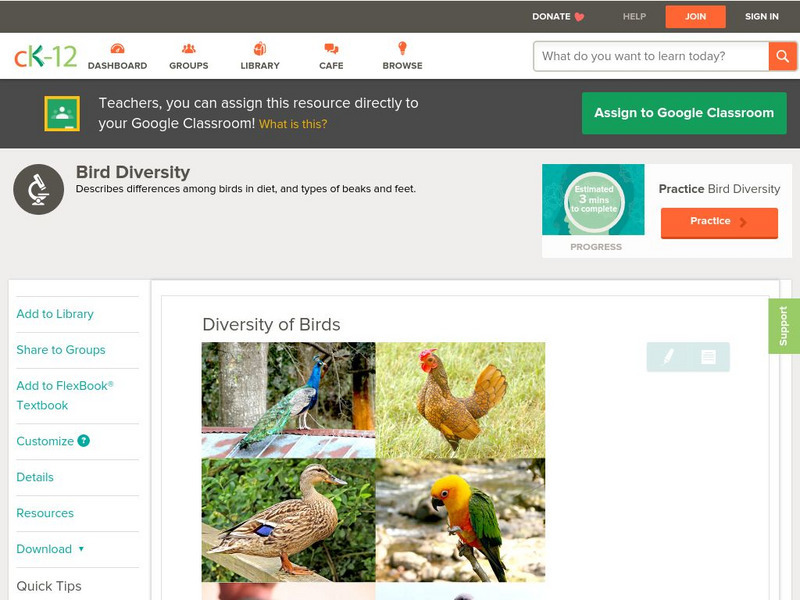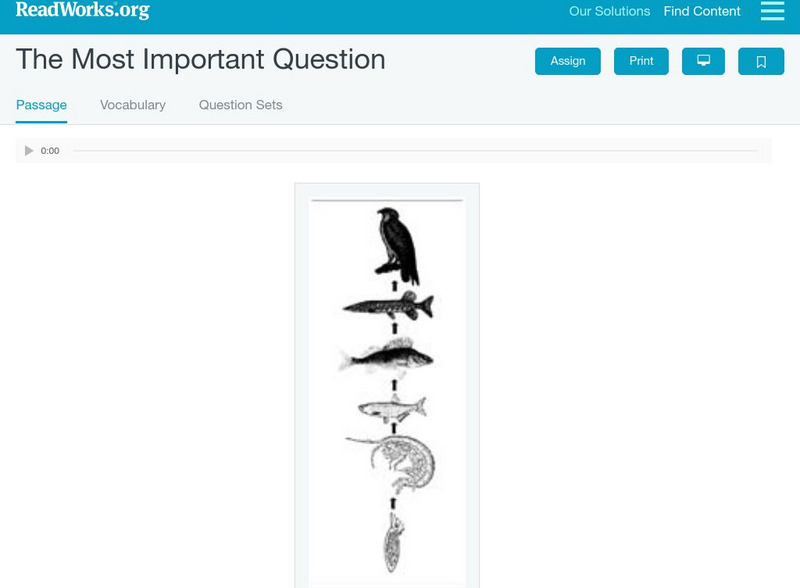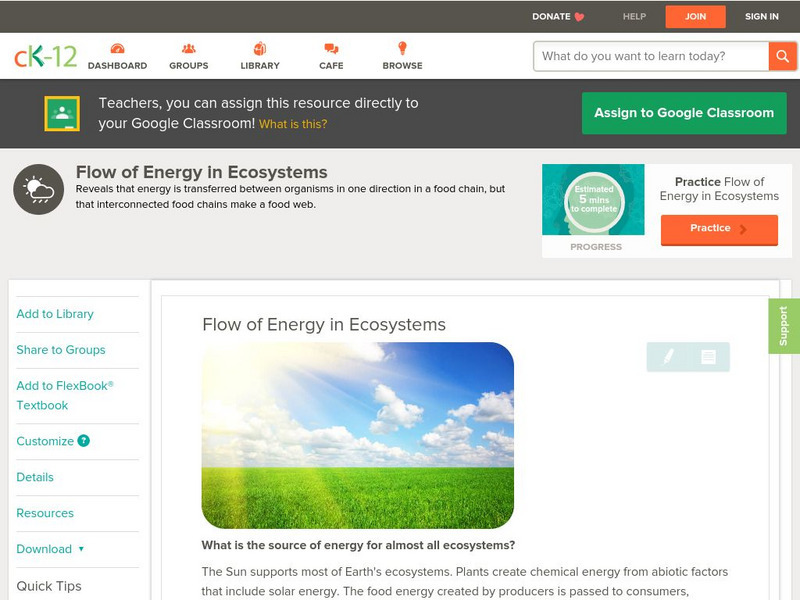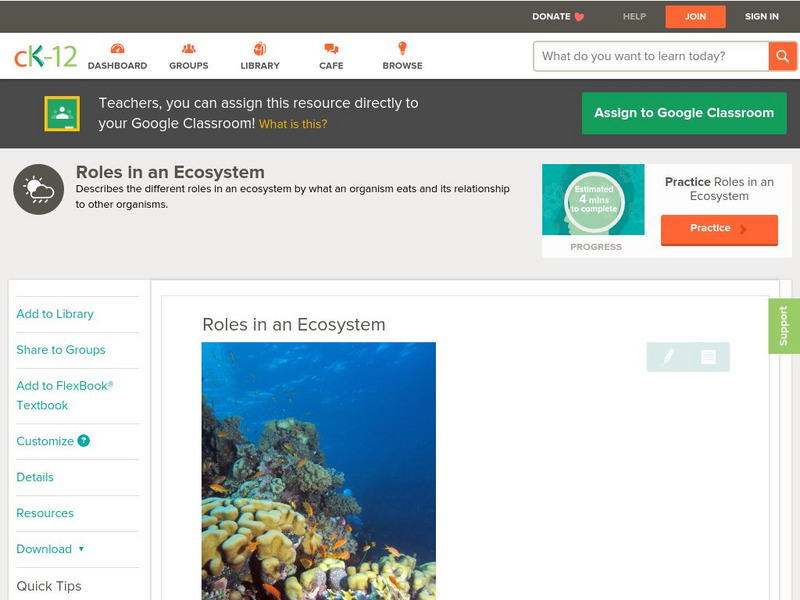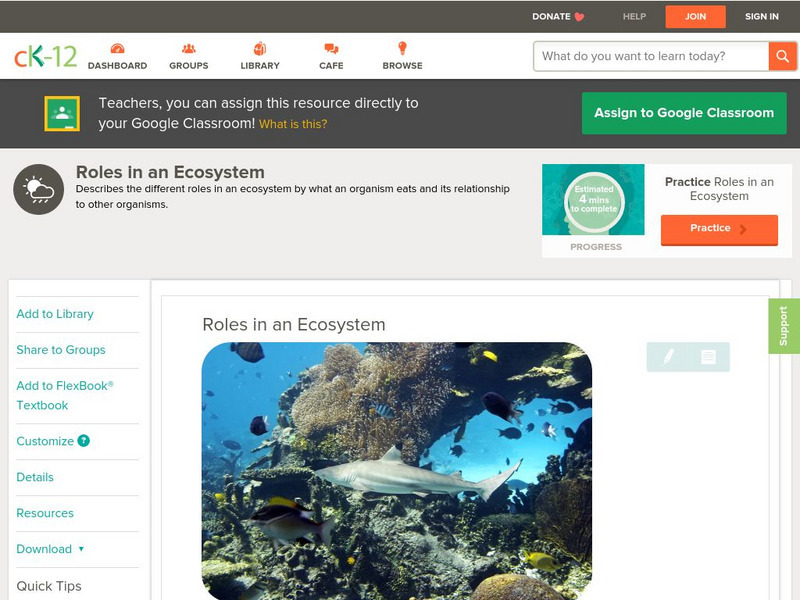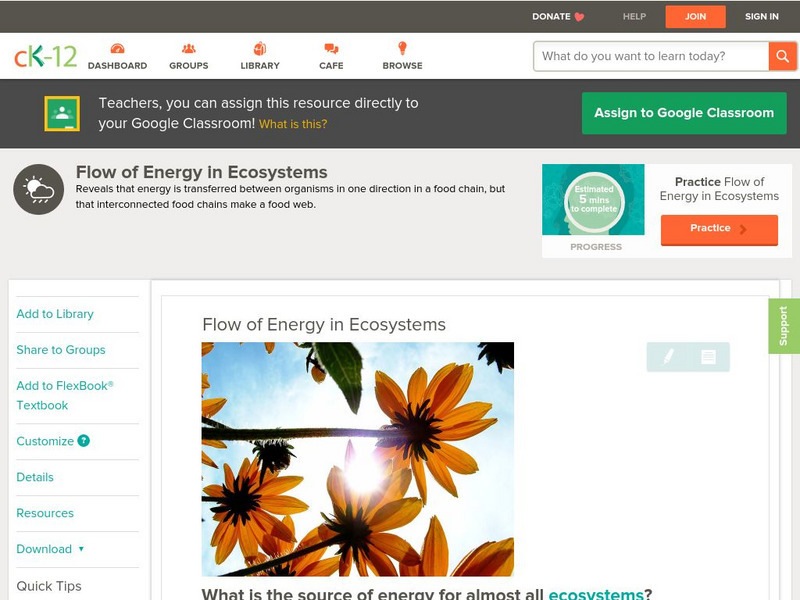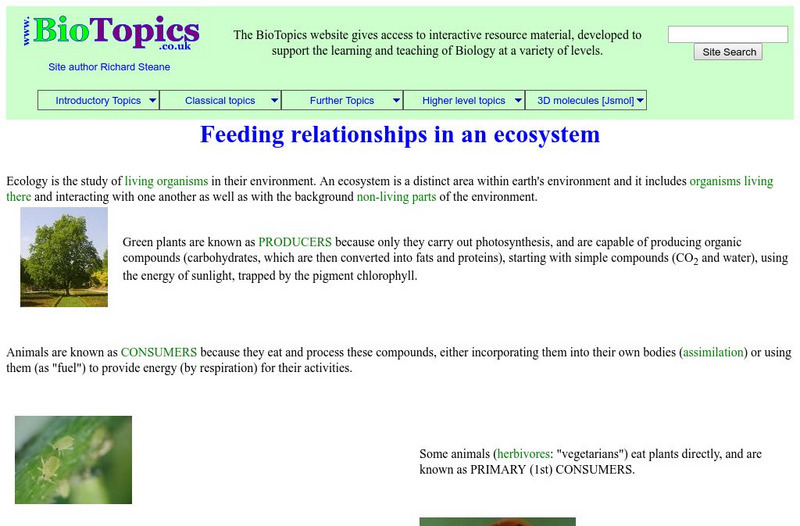Hi, what do you want to do?
Georgia Department of Education
Ga Virtual Learning: Biology: Ecology I
A comprehensive ecology learning module where students assess the dependence of all organisms on one another and the flow of energy and matter within their ecosystems.
BiologyWise
Biology Wise: Understanding the Process of Biological Magnification
Biological magnification is the term used to described the increasing accumulation of substances in organisms as one looks at higher trophic levels in a food chain. When that substance is a toxin, such as a heavy metal or a pesticide,...
Planet Pals
Planet Pals: Producers
This colorful site examines the food chain and delves into an explanation of what producers are and where they fit in an overall ecosystem.
Thomas Jefferson National Accelerator Facility
Jefferson Lab: Reading Passages: Who Eats What
Read and fill in the blanks of this passage explaining who eats what. Each blank has a dropdown menu with choices. When you finish, click CHECK MY ANSWERS. If you pick a wrong answer, the right answer will be displayed along with your...
CK-12 Foundation
Ck 12: Episd: Energy Pyramids
[Free Registration/Login may be required to access all resource tools.] Understand how energy flows within ecosystems through the use of energy pyramids.
CK-12 Foundation
Ck 12: Life Science: Diversity of Birds
[Free Registration/Login may be required to access all resource tools.] About 10,000 bird species belong to 29 different orders within the class Aves. The diversity among birds is striking. Birds can vary greatly in size and color. Some...
CK-12 Foundation
Ck 12: Earth Science: Flow of Energy in Ecosystems
[Free Registration/Login may be required to access all resource tools.] Describes how energy is transfered from one organism to another.
Read Works
Read Works: The Most Important Question
[Free Registration/Login Required] A literary text about some animals who have to learn to share their space around the pond. A question sheet is available to help students build skills in reading comprehension.
Bill Nye
Bill Nye: Planaria Fishing
In this tutorial, Bill Nye explains how to catch planeria, small carnivorous worms that live in ponds. In addition, he explains their role in the environment.
CK-12 Foundation
Ck 12: Earth Science: Flow of Energy in Ecosystems
[Free Registration/Login may be required to access all resource tools.] Describes how energy is transfered from one organism to another.
CK-12 Foundation
Ck 12: Life Science: Producers
[Free Registration/Login may be required to access all resource tools.] Energy is the ability to do work. In organisms, this can be physical work, like walking or jumping, or it can be the work used to carry out the chemical processes in...
CK-12 Foundation
Ck 12: Earth Science: Roles in an Ecosystem
[Free Registration/Login may be required to access all resource tools.] Describes the different roles in an ecosystem.
CK-12 Foundation
Ck 12: Earth Science: Roles in an Ecosystem
[Free Registration/Login may be required to access all resource tools.] Describes the different roles in an ecosystem.
CK-12 Foundation
Ck 12: Earth Science: Hazardous Waste
[Free Registration/Login may be required to access all resource tools.] Describes various types of hazardous waste.
CK-12 Foundation
Ck 12: Earth Science: Flow of Energy in Ecosystems
[Free Registration/Login may be required to access all resource tools.] Describes how energy is transferred from one organism to another.
ClassFlow
Class Flow: Habitats
[Free Registration/Login Required] A 2nd grade unit on animal environments and habitats. Include web links for information on different land and water habitats, as well as a lesson on food chains.
Bio Topics
Bio Topics: Feeding Relationships in an Ecosystem
This overview of feeding relationships illustrates to students the trophic levels of different organisms in an ecosystem. Hover the mouse over different terms to see their definitions.










